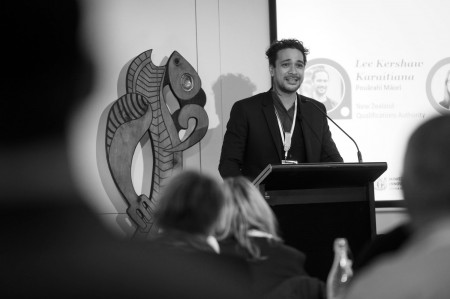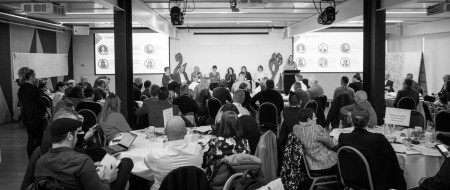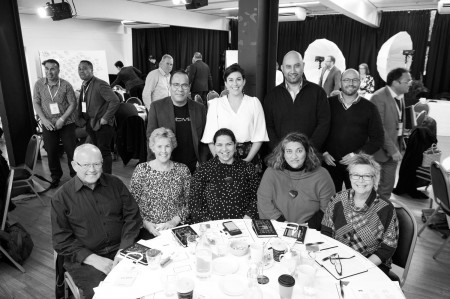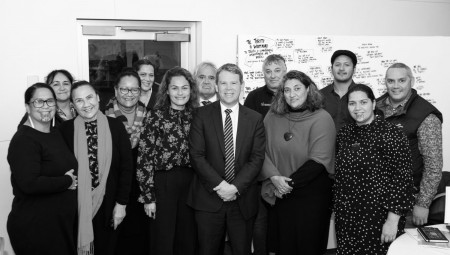High energy and focus at WDC induction event
High energy and focus at WDC induction event
 A highlight of the past month was the Workforce Development Council (WDC) induction event in Wellington on 7 and 8 July. I’d like once again to congratulate and welcome all the new Council members.
A highlight of the past month was the Workforce Development Council (WDC) induction event in Wellington on 7 and 8 July. I’d like once again to congratulate and welcome all the new Council members.
The induction was very well attended, and the room full of energy and anticipation. I enjoyed the opportunity to meet everyone but more importantly to see people getting to know each other, gaining a better understanding of the role WDCs will have in the new vocational education system, and starting to plan their path ahead.
The induction was focused on giving members the information and support they need to do their work, and it was a key way for TEC to help set them up for success.
For those who attended, I know that there was a lot to take in and I hope there wasn’t too much of an information overload!
Representatives from the Ministry of Education, TEC, NZQA and MBIE provided sessions including an outline of the new vocational education and training (VET) ecosystem, the outcomes that we’re looking for from this system change, and the critical role that WDCs will play in giving industry a much stronger voice in VET.
It was also a chance to talk about Te Tiriti o Waitangi, and the opportunities for greater responsiveness and better understanding of the needs of Māori and iwi across VET, including industry needs. There are high expectations on government in relation to honouring Te Tiriti o Waitangi, and specific Te Tiriti provisions for the sector in the Education and Training Act 2020.
We talked about the intent behind the reforms, and the shift in outcomes required to better support all learners, employers and their communities. A big part of this shift is how all the players in the system work together, and the session “who’s on this journey” prompted some great discussion and a really good picture of the connections.
The Q&As in the panel session at the end of day one offered an excellent insight into people’s understanding of the issues, and gave us a good idea of where we might provide more detailed information.
Designing a system for learners and employers
I spend a lot of time engaging on RoVE and I enjoy the conversations I have with a broad range of people, from those training or working or just interested in the VET sector.
This is big change and it can appear complex. But if we remember that we are designing a system around the needs of learners and employers, decisions become much simpler.
It’s also not unrelated to other conversations that we have at TEC and among other agencies on the wider work that is going on across VET and careers. At TEC, this includes our Inspiring the Future work and the opportunities to show the breadth and scope of vocational roles.
Significant progress on reshaping work-based learning
Across the RoVE programme, considerable work is happening with the Transitional ITOs. Since June, the TEC Board has approved transition plans for Competenz, Connexis and NZMAC. This is good progress and represents an important milestone for the integration of on-job, on-campus and online vocational training. See Momentous day as first two Transitional ITOs transition functions to other entities for further information.
I want to acknowledge the work that has been done by all those involved to get us to this point.
Through these plans, Transitional ITOs’ skills setting and qualification activities will transfer to WDCs, and their current arranging training functions will transfer to either Te Pūkenga or a private training establishment (PTE), depending on the preference of their respective industries. As we have previously noted Te Pūkenga has a MOU with Te Wānanga o Aotearoa on future options to support arranging training together.

Lee Kershaw-Karaitiana, MC for day 1, welcomes Council members to the event.

Speakers from across government agencies giving an overview to WDC Council members.

The newly appointed Services WDC Council.

The WDC Councils will work to honour te Tiriti o Waitangi and support Māori-Crown relationships. Reflecting this commitment, more than 40% of WDC Council members are Māori, some of whom are pictured here with Minister Hipkins.